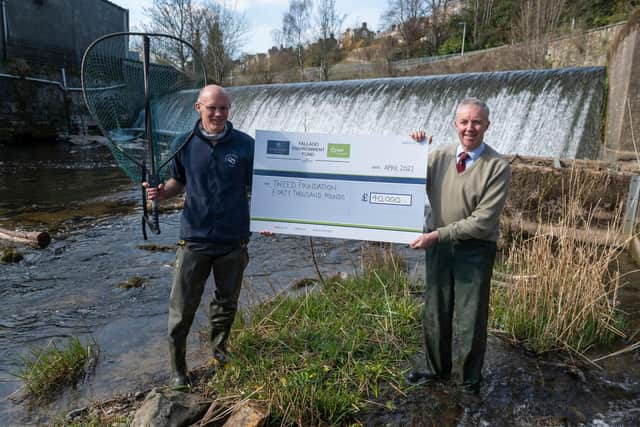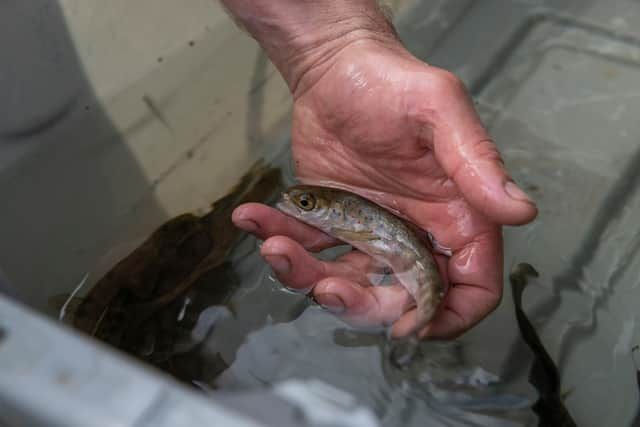Salmon research project nets £40,000 to investigate ways of improving fish stocks on River Tweed
and live on Freeview channel 276
The Tweed Foundation project has been funded in part by a £40,000 two-year grant from the Fallago Environment Fund.
The study is tagging 220 young migrating salmon known as smolts and tracking their progress as they make their way downstream towards the sea at Berwick.
Advertisement
Hide AdAdvertisement
Hide AdIncreasing marine mortality has seen a significant decline in the numbers of adult salmon returning to Scottish rivers, including the Tweed.


Between 1983 and 2016, the numbers of wild Atlantic salmon fell by more than half.
To help compensate for increased losses at sea, the Tweed Foundation’s research aims to better understand the factors affecting smolt survival as they pass down the river and investigate ways to minimize losses.
Building on a small pilot study from 2019, Tweed Foundation scientists are using tiny acoustic tags attached to the fish to monitor their journeys and estimate survival numbers of salmon smolts between Galashiels and Berwick.
Advertisement
Hide AdAdvertisement
Hide AdThe work will pinpoint areas where higher losses occur and devise testing methods that identify ways to improve survival. Potential reasons for smolt loss include low river flows, lack of sheltering habitats and predators.


Additional funding for the £106,000 project has also been received from the River Tweed Commission as well as from smaller private sponsors who are encouraged to sponsor a smolt, follow its progress as it migrates and have the chance of winning a prize if their smolt is one of the first three to make it out to sea.
James Hunt, biologist for The Tweed Foundation said; “It’s only with hard evidence on smolt losses that we can effectively target and improve our management of the river in order to boost the number of fish that reach the sea. Acoustic tracking of smolt is an effective way to carry out our research but it is expensive so we’re extremely grateful that the Fallago Environment Fund has supported this important project.”
Gareth Baird, chairman, Fallago Environment Fund said: “The Atlantic salmon is an iconic species that is hugely important to the ecosystem of the River Tweed and to the communities and businesses of the Scottish Borders and north Northumberland that rely on the fishing sector and the continued vitality of the river.”
